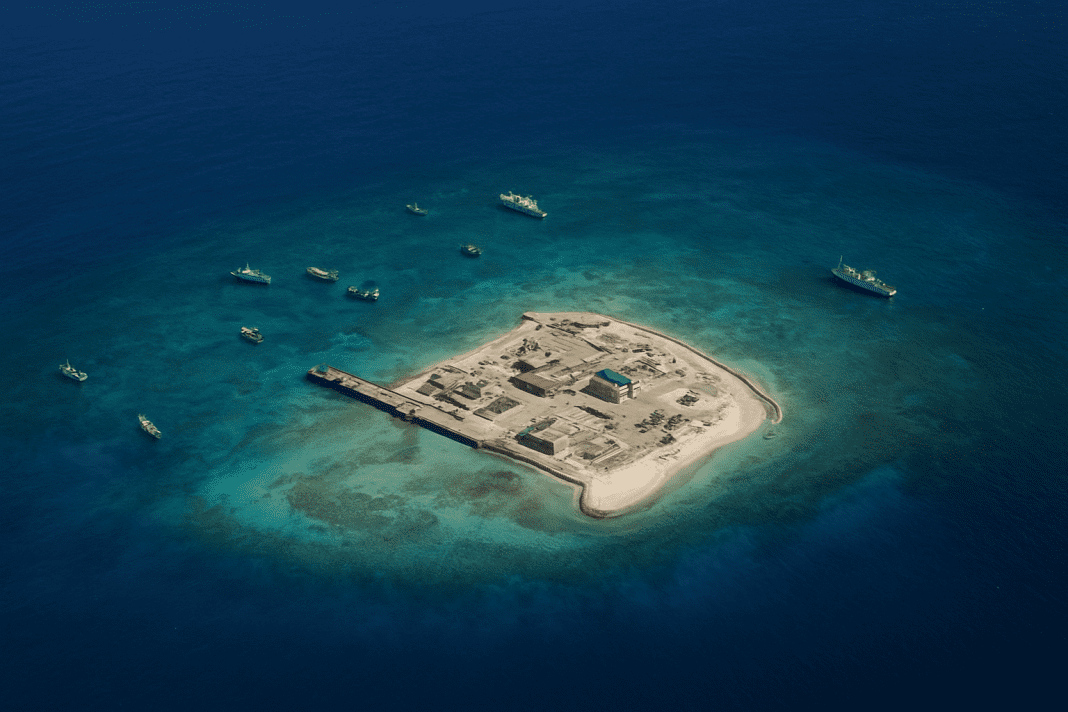The Philippines has announced that it is keeping a close watch on China’s recent plan to establish a “nature reserve” around Scarborough Shoal in the South China Sea. Officials said that Manila is carefully monitoring developments and assessing their impact on the country’s maritime rights and security.
Philippines Heightens Vigilance Over Scarborough Shoal
Scarborough Shoal is a small but highly strategic area, located about 200 kilometers west of the Philippines’ Luzon island. It is an important fishing ground, providing livelihood for many Filipino fishermen. The waters surrounding the shoal are also believed to contain valuable oil and gas deposits, adding to its economic and strategic importance.
Both the Philippines and China claim Scarborough Shoal as part of their territory. However, China has effectively controlled the area since 2012, after a tense naval standoff between the two countries. Manila maintains that the shoal lies within its exclusive economic zone (EEZ) under international law. China, on the other hand, rejects this claim and continues to assert its authority over the waters.
Philippines backs coastal defense with BrahMos missiles from India to guard against maritime threats
The Philippine Armed Forces are closely tracking Chinese activity in the area. Officials emphasized that any moves by China are being observed carefully, particularly to ensure that the country’s maritime rights are not infringed.
Environmental Move or Strategic Claim at Scarborough Shoal
China says its plan to designate Scarborough Shoal as a “nature reserve” aims to protect the area’s rich marine ecosystem. While China presents the move as an environmental measure, some experts warn that it could also help China strengthen its control over the disputed waters.
If China implements the nature reserve, it could impose regulations on fishing and restrict access to the area. For Filipino fishermen who rely on Scarborough Shoal for their livelihoods, this could limit their ability to operate freely in the waters. Critics argue that China may use environmental protection as a cover to consolidate its territorial claims, giving itself a seemingly peaceful reason to maintain a presence in the region.
💥 Deal of the decade? Trump slaps 19% tariff on Philippines—U.S. exports get free pass
The waters around the shoal are home to a wide variety of marine life, including fish, coral reefs, and other species. Conservationists generally support the protection of such ecosystems, but the political context of Scarborough Shoal makes the situation more complex. Balancing environmental protection with territorial disputes is challenging, especially when the area is of high strategic and economic value.
Regional Security and Strategic Importance
Scarborough Shoal is located in the wider South China Sea, a region that has long been a hotspot for territorial disputes. Several countries, including the Philippines, Vietnam, Malaysia, and Brunei, have overlapping claims in the area. The sea is also a critical route for international trade, with billions of dollars’ worth of goods passing through each year.
China’s move to create a nature reserve could raise tensions, not only with the Philippines but also with other regional stakeholders and allies such as the United States. The Philippine authorities have reiterated their commitment to safeguarding their sovereign rights. Philippine authorities have stepped up maritime patrols and monitoring operations to ensure that Chinese activities do not infringe on Philippine territory or disrupt the livelihoods of local fishermen.
China warns Philippines after rumored Taiwan minister visit sparks uproar
If China enforces the designation of Scarborough Shoal as a nature reserve, it could impose stricter regulations that may restrict access to the waters. This could increase encounters at sea, particularly between Chinese patrols and Philippine coast guard vessels or fishing boats. Other Southeast Asian countries are also closely watching the situation, as China could apply the same approach to other contested areas in the South China Sea.
The situation at Scarborough Shoal highlights the ongoing tensions in the South China Sea, where environmental initiatives, economic interests, and geopolitical strategies intersect. The Philippines continues to monitor developments carefully, maintaining a vigilant stance to protect its maritime rights while observing the implications of China’s plans for the disputed waters.
